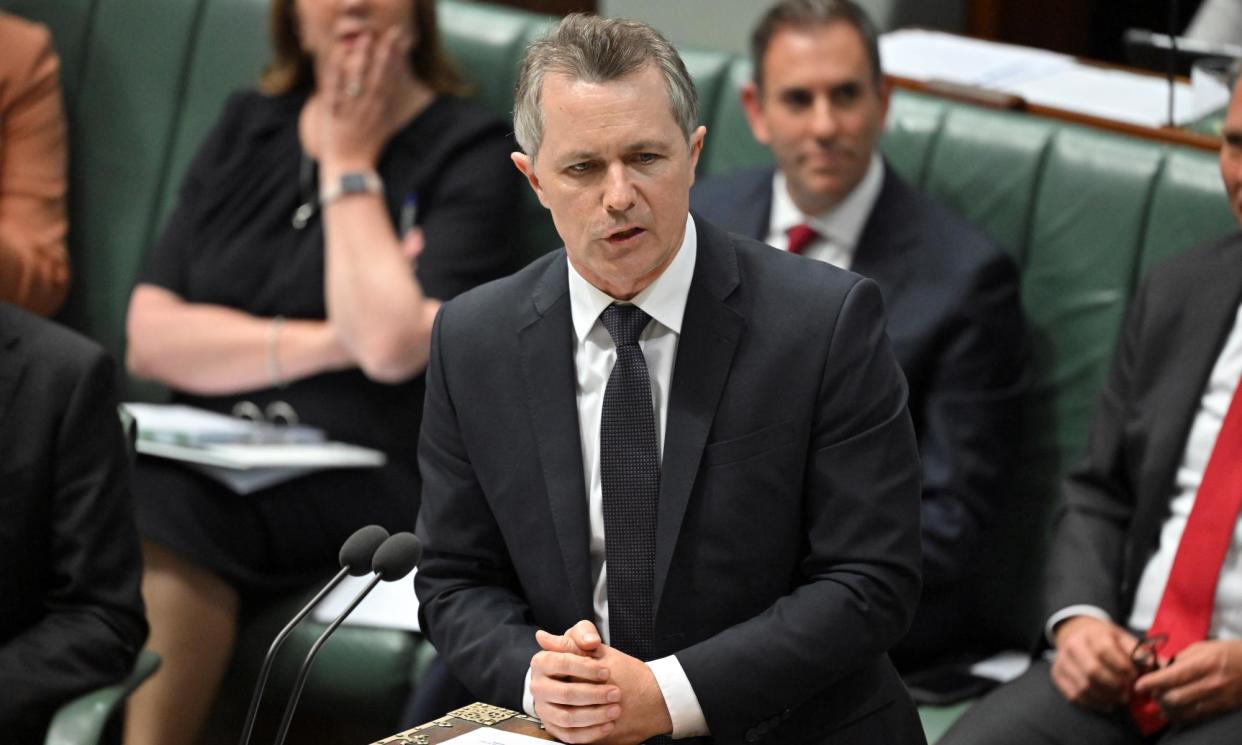School funding reform to be tied to better outcomes for children with disability, Jason Clare says

The education minister, Jason Clare, has said the next national agreement on school reform will be tied to improved outcomes for students with disabilities, amid a split with the states over increased funding levels.
“I want students with disability to have the same educational opportunities as students without disability,” he told Guardian Australia.
As the commonwealth and most states remain locked in negotiations over who will pay to fully fund schools to 100% of the schooling resourcing standard (SRS), Clare is doubling down on the need for states to do more to improve outcomes for students from disadvantaged backgrounds, including those with a disability.
Related: How the rise of autism and ADHD fractured Australia’s schools
A Guardian Australia investigation, The Classroom Divide, has exposed deep inequities in the way students with a disability are funded in Australian schools, with families, teachers and advocates concerned at the way students with disabilities are being included in mainstream schools.
Clare said the current negotiations would prioritise the issue.
“I’m working with my state and territory colleagues to get all public schools to their full and fair funding level and to tie that funding to the reforms that will help children catch up, keep up and finish school, including those with a disability,” he said.
The minister has repeatedly said the states should not expect a “blank cheque” after a damning report from the Productivity Commission released in December found that academic outcomes had fallen despite increased funding levels.
The federal government wants funding tied to new reporting obligations on the states, including around funding for students with a disability, but is facing pushback.
Negotiations are also touching on how the $3.6bn student with disability loading payment is being managed by the states, with the federal government refusing to release a review into the payment, saying it would “impact negotiations for the next National School Reform Agreement”.
Funding deals have been struck this year with the Northern Territory and Western Australia but the government is still in negotiations with other states over who will pay for the 5% increase needed to lift school funding levels.
The commonwealth is proposing lifting the federal share of public funding from 20% to 22.5% in a deal worth an extra $6bn over five years, while the states want the federal government to lift its share to 25%.
The Greens education spokesperson, Penny Allman-Payne, said that she wanted to see more urgency from the federal government on reaching 100% of the school resourcing standard more quickly and for other system-wide reforms.
“The idea that we are still shuffling towards full funding after a decade is abysmal,” Allman-Payne said.
Related: Here are six ways to make education more inclusive | Catherine Smith
“From a political perspective, for the current government, this is absolutely about choices. We can choose to give people like me a massive tax cut, or we can actually invest in the things that really matter.”
“My message to them is they need to stop giving money to elite private schools that are overfunded and they need to immediately increase the funding to public schools to 100% of the SRS at the start of the next agreement.”
She said that while the complexity of students had increased, the resourcing to meet that need had not adjusted adequately.
“There’s not one thing that you can talk about that we need to do that doesn’t require a significant investment,” she said.
“You can’t give teachers more time to collaboratively plan or work with parents and families and carers if you don’t put more money into the system, and you can’t have the additional resources that are desperately needed if you don’t put more money into the system.”


